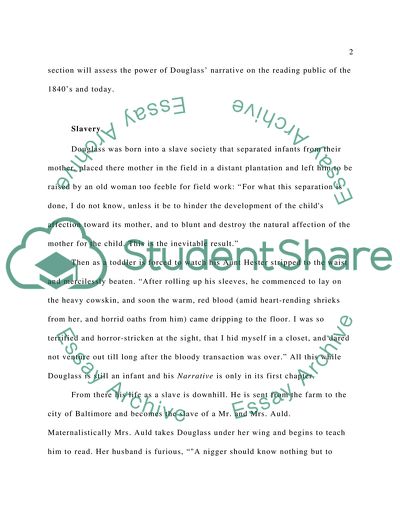Cite this document
(Analysis of Narrative of the Life of Frederick Douglass, An American Literature review, n.d.)
Analysis of Narrative of the Life of Frederick Douglass, An American Literature review. Retrieved from https://studentshare.org/literature/1747116-narrative-life-of-frederick-douglass
Analysis of Narrative of the Life of Frederick Douglass, An American Literature review. Retrieved from https://studentshare.org/literature/1747116-narrative-life-of-frederick-douglass
(Analysis of Narrative of the Life of Frederick Douglass, An American Literature Review)
Analysis of Narrative of the Life of Frederick Douglass, An American Literature Review. https://studentshare.org/literature/1747116-narrative-life-of-frederick-douglass.
Analysis of Narrative of the Life of Frederick Douglass, An American Literature Review. https://studentshare.org/literature/1747116-narrative-life-of-frederick-douglass.
“Analysis of Narrative of the Life of Frederick Douglass, An American Literature Review”. https://studentshare.org/literature/1747116-narrative-life-of-frederick-douglass.


